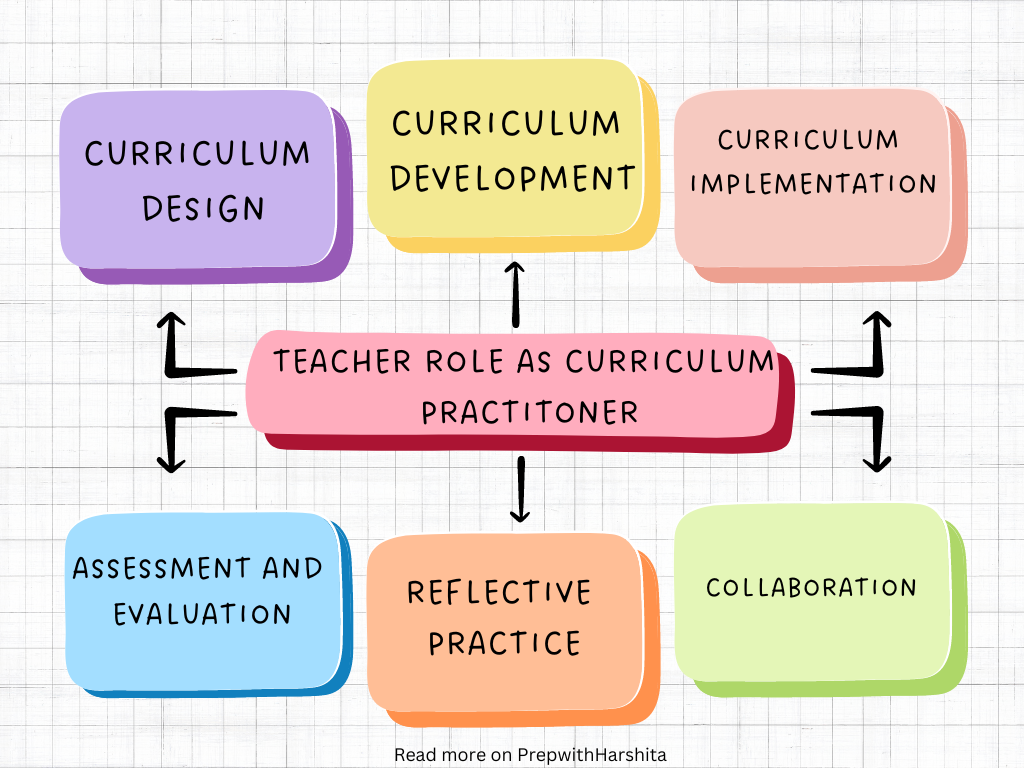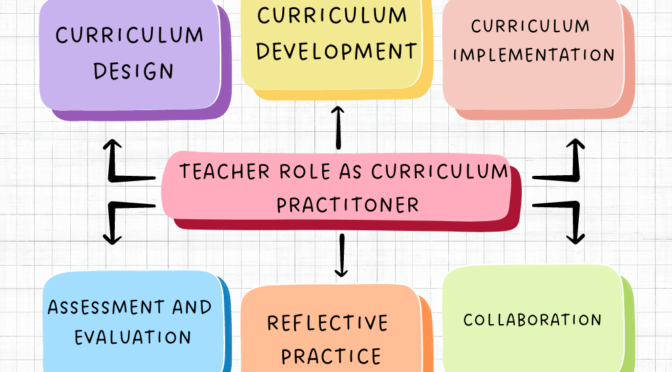The role of a teacher as a curriculum practitioner is important in shaping the educational experience of students. The term “curriculum practitioner” refers to someone who is actively engaged in the design, development, implementation, and evaluation of educational curriculum.
Here are some roles played by teachers as curriculum practitioners:
Curriculum Design
- Identifying Educational Goals: Teachers play a key role in identifying the educational goals and objectives that students should achieve. They need to have a clear understanding of the desired learning outcomes.
- Selecting Content: Teachers decide what content is essential for students to learn. They choose topics, themes, and subject matter that align with the curriculum standards and objectives.
Curriculum Development
- Creating Learning Materials: Teachers mostly create or adapt learning materials such as lesson plans, handouts, and multimedia resources to support the curriculum.
- Differentiation: Teachers understand the diverse needs and learning styles of their students when developing the curriculum. They may apply differentiated instruction strategies to accommodate various learners.
Curriculum Implementation:
- Classroom Instruction: Teachers are responsible for delivering the curriculum in the classroom. This involves using effective teaching methods, strategies, and techniques to engage students and facilitate learning.
- Adaptation: Teachers may need to adapt the curriculum based on the specific needs of their class. Flexibility is important to accommodate various learners.
Assessment and Evaluation:
- Designing Assessments: Teachers develop various forms of assessments, including tests, quizzes, projects, and presentations, to evaluate student understanding and mastery of the curriculum.
- Feedback: Teachers provide timely and constructive feedback to students based on their assessments. This feedback informs both the teacher and the students about progress and areas for improvement.
Reflective Practice:
Continuous Improvement: Teachers engage in reflective practice to assess the effectiveness of the curriculum and instructional methods. They continuously seek ways to improve their teaching practices based on ongoing reflection and feedback.
Collaboration:
- Working with Colleagues: Teachers collaborate with other educators, curriculum specialists, and administrators to ensure consistency and alignment across grade levels and subjects.
- Professional Development: Staying updated on educational trends and participating in professional development activities helps teachers enhance their curriculum development skills.
Also Read: Core Curriculum

Also Visit: Prep with Harshita

